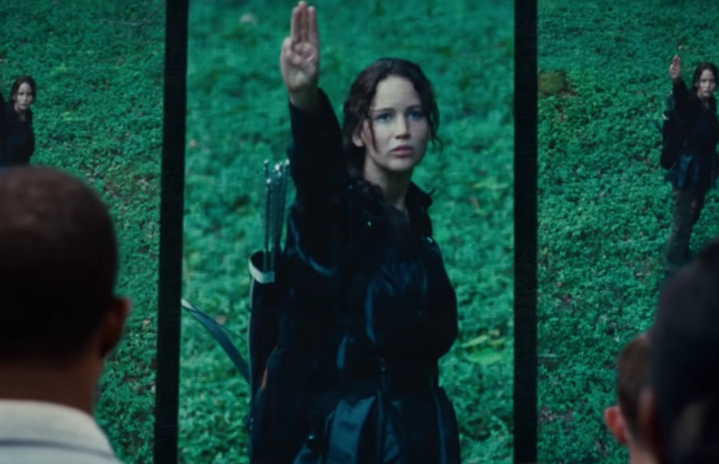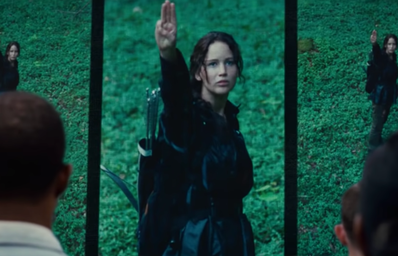After watching The Ballad of Songbirds and Snakes, I felt like I had been taken back in time 10 years to when I had first encountered, The Hunger Games. I viscerally remember devouring the first book in a car ride, visiting family for Christmas. I was so disappointed when we got to our destination because it meant I had to put it down and leave the world of Panem. I have always wondered why I and so many others loved this series. I would even say it has become a sort of comfort book because of the nostalgia that is attached to it. However, after watching the new film this year and then revisiting the original series, with adult eyes, I am concerned for my 9-year-old self. But also, it tells me that these books and films, although marketed for teenagers, are just as compelling for an adult but perhaps for different reasons.
When I was younger, I will admit the element of books I was most invested in was the romance! I was captivated by the ‘love triangle’ between Katniss, Peeta and Gale, and would be frustrated by Katniss when she didn’t choose who I fancied. Now, I look at the romance in a whole other way. In fact, I’m not so sure there is much. There is clearly one man who deeply cares about her (Peeta), but this story is one of revolution and the final instalment in the original trilogy, Mockingjay, reads like a war novel. So, perhaps naively, I thought that this new prequel would lean more into the more political themes of the narrative.
However, we may not have progressed as far as we would like to think. When The Hunger Games was published in 2008, and subsequently adapted into a feature film a few years later, marketing was aimed at young women, using the ‘romance’ element of the story as the primary selling point. In hindsight this seems strange, yet the marketing for The Ballad of Songbirds and Snakes is seemingly following suit. You need only to spend a few minutes on TikTok, and you will come across one of the millions of ‘edits’ made of Tom Blyth as Coriolanus Snow. People are clearly very invested in the forbidden love and betrayal narrative that is played out by Lucy Gray and Snow. This was jarring to me as I thought we may have moved past this. My main take aways from watching the film was just how uncomfortable I was. When the credits started rolling, I quietly said to my friend next to me “It was much more gruesome than the originals, wasn’t it?” They didn’t seem as sure, but throughout the film we had been jumping out of our seats and gasping when the next child was viciously murdered. Even at 19 years old, these characters seemed so much younger and vulnerable. The true dystopian nature of the core concept of the series truly dawned on me. That is not to say that I wasn’t disturbed when I was younger, but now, having a better understanding of politics and injustice, it was not much of a mental leap to see this playing out in our world. Here is the genius of good dystopian or speculative fiction writing. It is written as a warning for the readers, it should be confronting that we may relate to what is going on in a seemingly ‘fictional’ reality.
But why is The Hunger Games not seen as that? As terrifyingly possible or indicative of our political climate as say 1984 is. My thesis: Suzanne Collins, as a female writer, dared to write a dystopian book, with a teenage girl protagonist that would appeal to young women. She has sinned three times! How dare she write politically and for teenagers. I think the publishing industry is doing a disservice to this story by reducing it to one audience in the bookshop. It has remained the only dystopian book of that time to remain relevant. I wonder if this story had a male protagonist and was written by a man would it be shelved in a different section? Would the film adaptation have been marketed differently? Suzanne Collins is a major figure in shaping the genre of dystopian literature and I think she should be placed alongside Margaret Atwood and George Orwell as figures who have changed and defined this genre of literature. She has created a modern classic that will live on for every generation to read, perhaps as their first encounter into rebellion and revolution, themes that transcend gender and age.


